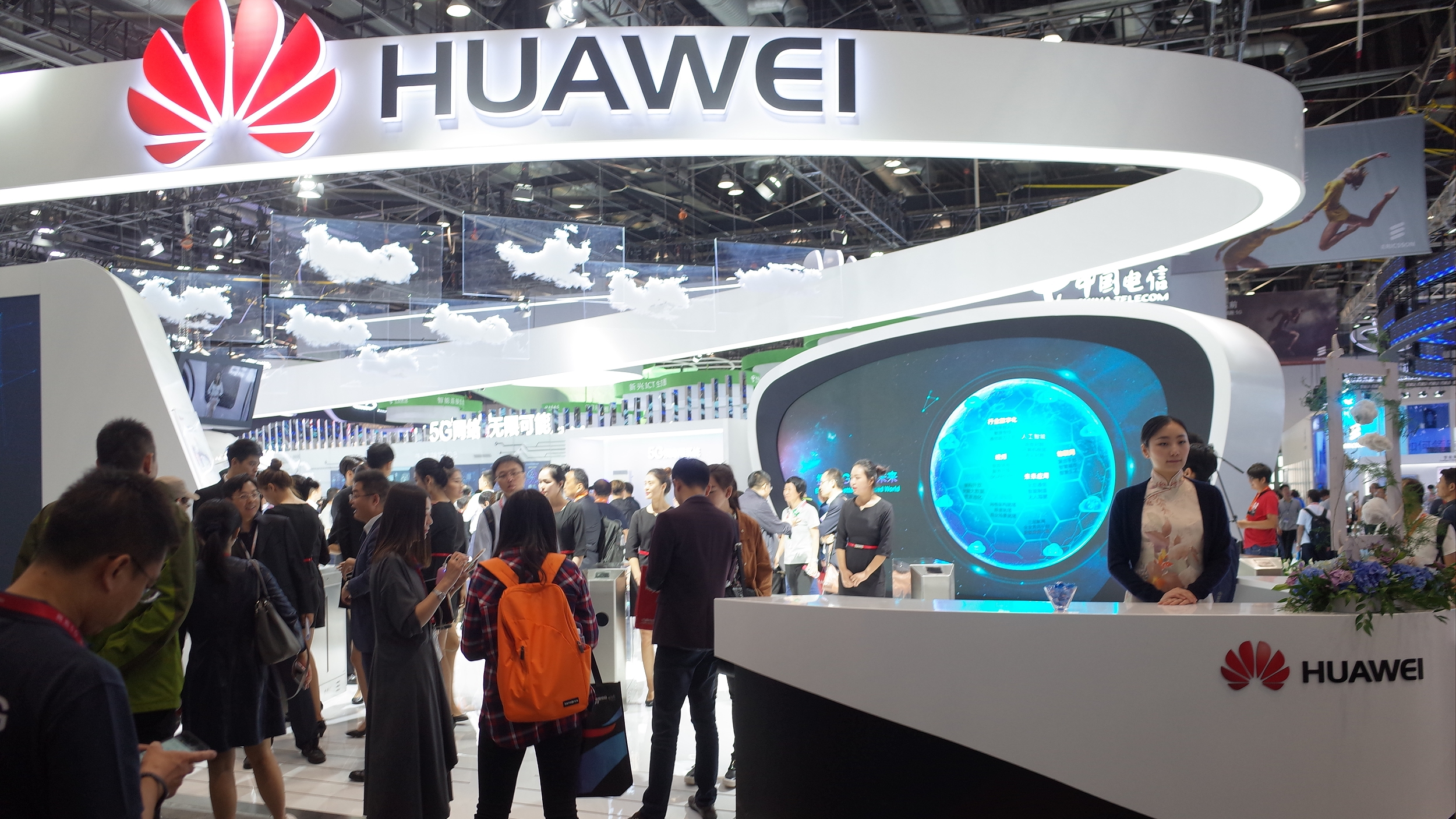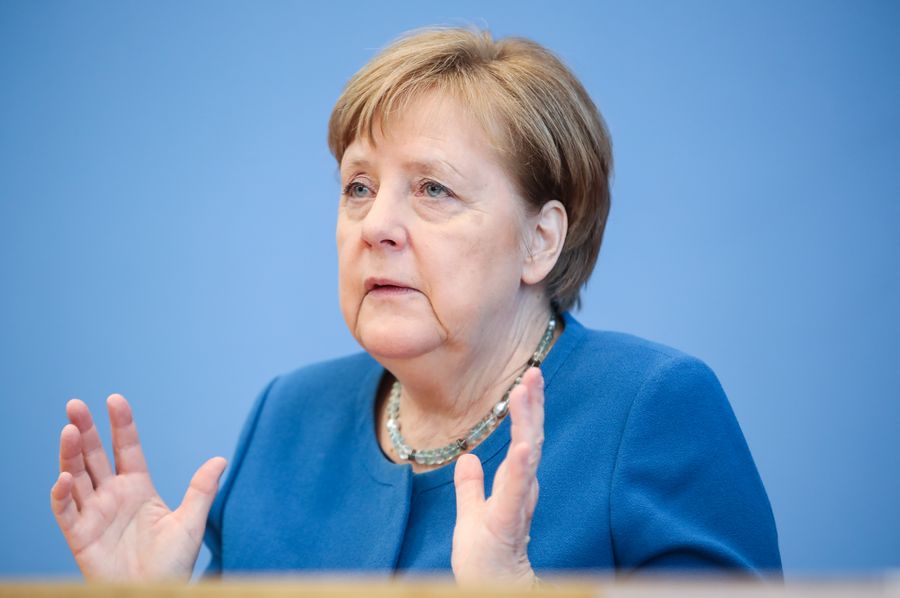
The Huawei booth at PT Expo China held in Beijing, China, September 27, 2017. /VCG
The Huawei booth at PT Expo China held in Beijing, China, September 27, 2017. /VCG
Editor's note: Hannan Hussain is an assistant researcher at the Islamabad Policy Research Institute (IPRI) and an author. The article reflects the author's opinions, and not necessarily the views of CGTN.
The latest version of Germany's IT Security Law, reviewed by Reuters on November 20, suggests a concerted effort within the country's coalition government to determine the national security risks tied to a telecoms vendor.
The draft legislation conditions a vendor's exclusion from German national 5G networks based on a political consensus, which itself is contingent on "hard evidence" to prove equipment-related security risks actually exist.
If an evidence-based approach is truly set to determine the future of telecoms vendor operations in Germany, this marks a major advantage for Huawei. The telecom giant has built its entire case on a level playing field for 5G network vendors in Germany, and a risk-free cyber security track record. Both factors have served as effective counterweights to groundless espionage and intelligence allegations of late, generating significant optimism for the future.
From Berlin's perspective, the draft legislation carries a long-term goal: to develop a workable framework that allows Germany to determine a vendor's reliability in the sphere of ultrafast 5G networks. This is a long-term security prerogative with motivations not necessarily geared towards singling out select vendors, such as Huawei.
However, the same draft also serves a policy objective within Chancellor Angela Merkel's ruling coalition: to weigh the merits of Huawei's reception within her Christian Democratic-led bloc, and its perceived reservations among partner coalition ranks.
It is here that the German reasoning on Huawei must detach itself from any questionable, politically motivated rationales, particularly those that align with the overt pressure campaign of foreign allies. Above all, a tight evidence criteria will lend ample credibility to Germany's "working-level committee" – indicated in the draft IT security law – as conclusions on telecoms vendor reliability are determined "by consensus," free of external interference.
In recent months, some members of Germany's Social Democratic Party – Merkel's coalition partner – have incorrectly judged Huawei as an untrustworthy supplier. Others have argued that Huawei's exclusion demands legal avenues within the German parliament – not the stated purpose of the forthcoming legislation.
"The German parliament requires the legal means to be able to exclude untrustworthy suppliers like Huawei from the 5G buildout, and this new law appears to do just that," said Nils Schmid, foreign policy spokesperson for the Social Democrats in September.

German Chancellor Angela Merkel attends a press conference in Berlin, capital of Germany, March 11, 2020. /Xinhua
German Chancellor Angela Merkel attends a press conference in Berlin, capital of Germany, March 11, 2020. /Xinhua
This line of argument risks striking strong parallels with Washington's own pressure campaign against Huawei, where European allies have been encouraged to shut out Huawei based on groundless security risk allegations, including so-called "back doors" that allegedly facilitate espionage. Merkel has demonstrated considerable foresight in this regard, refusing to lend outright support to contentious blanket ban lobbying, much of which is a reflection of U.S. anti-Huawei offensives.
The latest draft legislation seems to prioritize multilayered consultations within the coalition, to formally weaken the prospects and applicability of a Huawei blanket ban.
First, a newly created standing committee would induce representation from Merkel's Chancellery, as well as across inter-ministerial ranks. In Huawei's case, limited consensus-building at the committee level will not mark a complete drift towards political wrangling, but instead the matter will be referred to ministers, and ultimately, the government's own disputes resolution procedure.
Moreover, Huawei's remarkably consistent cooperation with Germany's leading operators – Deutsche Telekom, Vodafone, and Telefonica – is an added incentive to consider the company's evaluation by performance.
As early as May, Vodafone acknowledged the centrality of Huawei equipment to reaching its eight-digit 5G penetration base target by the end of the year. New research from Oxford Economics shows that Huawei contributed a total of 16.4 billion euros ($19.5 billion) to Europe's GDP last year, backed by nearly a quarter of a million in supported jobs.
These numbers, bolstered through Huawei's record-breaking 12.7 billion euros in global R&D budget in 2018/19, send a powerful message about its long-standing commitment to customer safety, network security, and equal- opportunity advantages for all actors involved in Huawei's cooperation ecosystem.
The German economy – a recurring reference-point in parliamentary deliberations – was also a beneficiary from Huawei's operations. These merits arrive on the back of the same legal compliance, commercial success and cutting-edge technological advancements that marked Huawei's advent in Germany and beyond.
Merkel's balanced approach to Huawei, in stark opposition to some of Germany's closest allies, suggests that informed inputs from industrial stakeholders may become a decisive consideration at some point. Due attention there could effectively steer the Huawei conversation in policy circles away from unwarranted national security speculations. The needle could finally settle on technological prowess – an area of multi-actor partnerships that represent some of the best of Germany's high-tech breakthroughs with China.
(If you want to contribute and have specific expertise, please contact us at opinions@cgtn.com)

